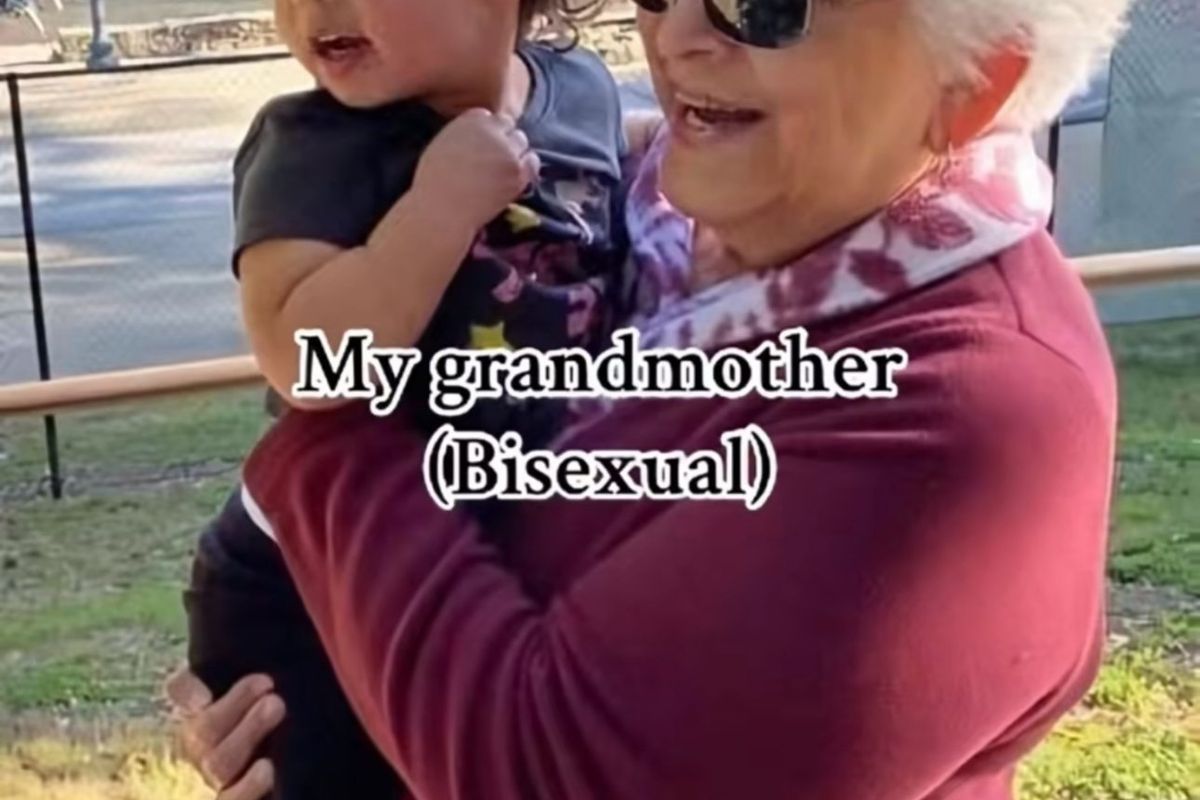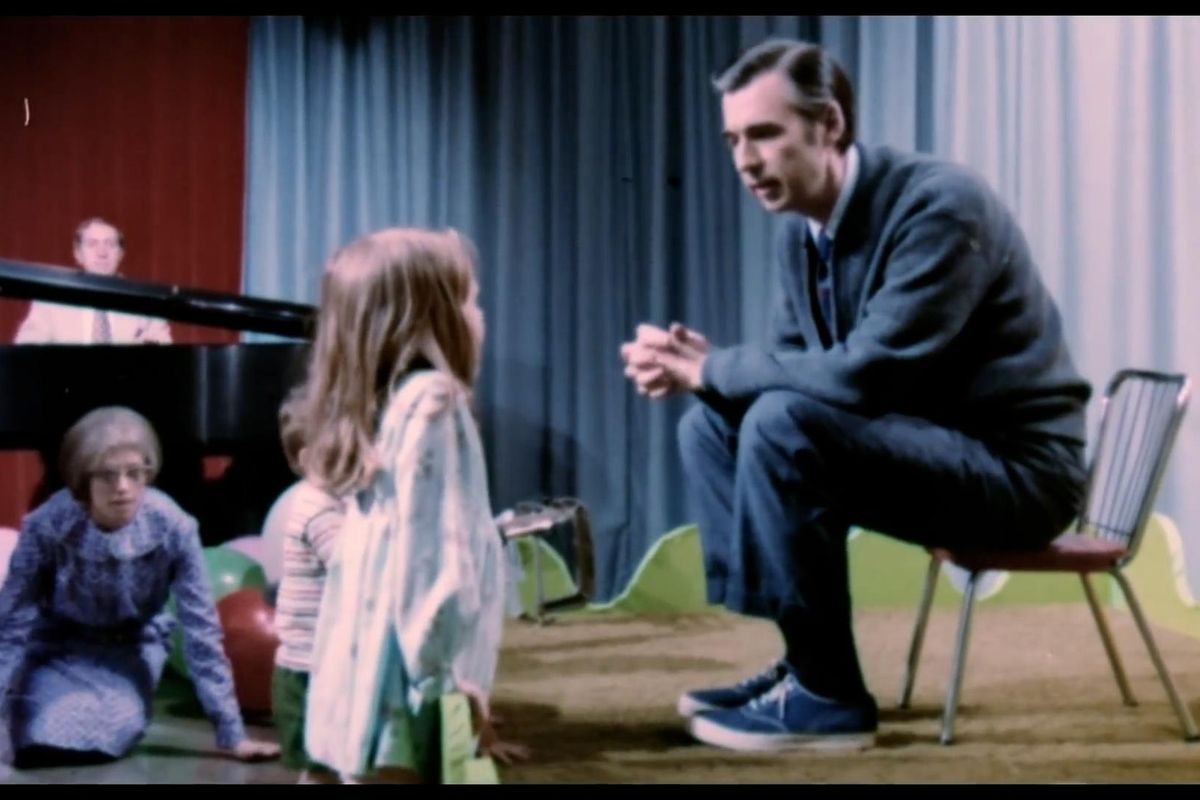Beyond love: The family legacy born from a 63-year lavender marriage
“They knew they had to protect each other at all costs.”
The results of a 63-year lavender marriage? Astounding.
Though decades have passed, the effects of the infamous “lavender scare"—a devastating moral panic that swept across the U.S. during the mid-20th century like a virus, targeting gay men and women—continue to reverberate today. It lives within the daughters, sons, friends, and grandchildren of those who were so cruelly denied the freedom to live life on their own terms. However, despite the rampant homophobia and bigotry these people endured, it would also be wrong to say their lives as nothing but a string of suffering, pain, and sorrow. For Elida Rose, who spent 63 years in what’s known as a “lavender marriage” with her closeted husband, Donald (who passed away in 2021), her story even comes with a happy ending. At the ripe, tender age of 90 years old, the Colombian immigrant and doting grandmother embraced her bisexuality. After six decades of living a double life, no longer held in the shackles of fear, she was finally able to enjoy the sweet taste of freedom that comes with embodying your true, authentic self.
Donald and Elida’s remarkable love story, although strictly platonic, was documented in a touching viral TikTok series created by their granddaughter, Christian Owen. In a flurry of slideshows, she depicts her grandparents’ lavender marriage—photos of the family with their two daughters, her grandfather making moves in Hollywood as an up-and-coming graphic design artist, Elida’s devout Catholicism, and her deep belief that queer people deserve a place in the Catholic church. Their commitment to each other demonstrates how their profound sacrifices paved the way for future generations to live authentically and love freely.
@faultywiring0709 I am so truly blessed. #fyp #TikTokPartner #pridetiktok #lgbt #lavendermarriage #
At the time, being gay was dangerous, and many faced vile social and professional consequences due to their sexual preferences. As a result, many queer people agreed to “lavender marriages,” covert unions typically between a man and a woman, where one or both partners were secretly gay. They wed, promising to keep each other safe. Lavender marriages are often referred to as “marriages of convenience”: a means to an end, a last-ditch survival tactic to conceal their true sexual preferences and avoid facing the potentially catastrophic repercussions.
Elida and Don’s six-decade relationship has swept social media, where their platonic love for each other has captured the hearts of thousands. Christian lovingly chronicles her grandparents’ lives, writing “I am so truly blessed” in a caption. “Despite both of them being LGBTQ, they were each other’s best friends and loved and protected each other fiercely… [and] as a result of my grandparents’ loving 63-year lavender marriage, they had two daughters, four grandchildren, and eight great-grandchildren.”
- YouTubewww.youtube.com
Their story begins in West Hollywood, where Don was a Los Angeles Art School student and Elida was in nursing school. The two met and became fast friends. However, as Don’s career as a graphic design artist began to blossom in Hollywood, working with celebrities like Ansel Adams, Hugh Hefner, and Francis Ford Coppola, he feared that, like many in the industry, his sexuality would get him black-listed. With Elida’s immigration status pending, the two decided to wed. Don found a dazzling gold ring and set the emerald Elida had brought with her from Colombia in it, telling her, “I want you to always carry a piece of home with you.” (Christian would later propose to her girlfriend, now wife, Laura, with the same ring.) And just like that, Don and Elida found themselves in a lavender marriage.
But although Don never got the chance to live authentically as an out gay man, it turns out Elida had a few secrets of her own. Following Donald’s death, as the family lamented the fact that he’d always had to hide his true self, a secret slipped out. Seemingly out of the blue, she announced, “I might be 90 years old, but, well, I like women. I always have.”
Whoa.

"Being able to live as my true self now means more to me than freedom, it is freedom," Elida told PEOPLE. "Please don't get me wrong, I loved my husband so much. We had a beautiful life together, but not being able to be our true selves made us felt like we were in a prison."
The term “lavender marriage” may be unfamiliar to some, especially younger generations. The fact that we now live in a time when this phrase, once synonymous with the oppression of queer people, has begun to fade from our collective memories speaks to the remarkable progress of the LGBTQ+ movement and activists. The concept dates back to the early 20th century, when society heavily stigmatized same-sex attraction. During Hollywood's Golden Age, many stars were forced to covertly enter these unions to protect their careers and public images. This was largely due to "morality clauses" in 1920s actors' contracts that prohibited any behavior considered "a deviation from social norms."
But lavender marriages came with a cost. Although they shielded queer men and women from the harsh realities of social expectations, these romantically void unions were often heartbreaking for all involved. They required immense emotional resilience and trust between partners. Because while Donald and Elida certainly had love for each other, keeping up the facade as a heteronormative family was far from easy. Their partnership demanded constant negotiation, sparking paranoia, fear, and even jealousy. “My grandparents had an arrangement,” says Christian. “When my grandfather was home, he prioritized him, her, and their family… [and] my grandfather worshipped the ground [Elida] walked on.” The two devised a special arrangement where they could date outside of their marriage, as long as they adhered to certain rules.

Christian’s videos have resonated deeply with viewers, who also carry oceans of emotion regarding lavender marriages and their impact on those involved.
"Lavender marriages are so beautiful, but also sometimes have a sense of underlying sadness. They make me feel bittersweet, in a way," one person commented.
“I’m reading The Seven Husbands of Evelyn Hugo. Something about a lavender marriage is so bittersweet,” added another.
Then, from user Holly Danielle: “The only word that comes to mind is love. True, real, raw, unconditional love. Your family is absolutely beautiful. Thank you for sharing with us.”
According to ancient Greek philosophy, lavender marriages exemplify philia, or “friendship love.” Unlike eros, which is associated with romantic love, philia represents a deep bond between friends, a profound platonic connection rooted in mutual respect, companionship, and trust. In these marriages, partners often provided each other with a level of emotional support that transcended typical romantic love. Beautiful, yet sad, like the prettiest songbird stuck in a cage.
After significant demand from fans, Christian is currently crowdfunding on GoFundMe to create Lilac Love, The Story of Elida Rosa, a movie that would chronicle the marriage between her 90-year-old lesbian grandmother and gay grandfather. “Her story has inspired millions,” she writes. “And I know [it] has the potential to inspire millions more. Her story deserves to be told and honored!”





